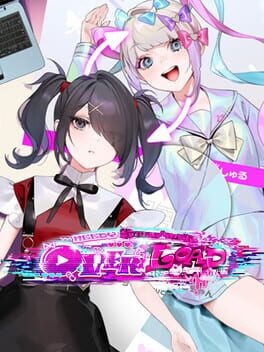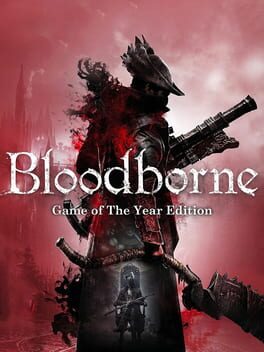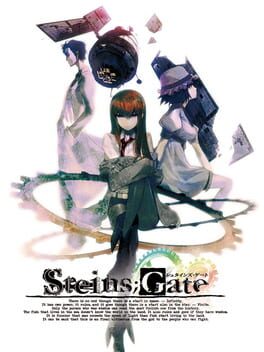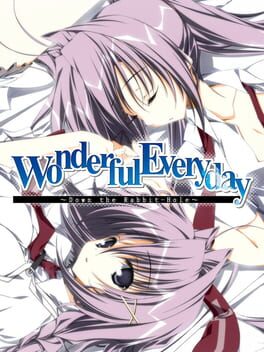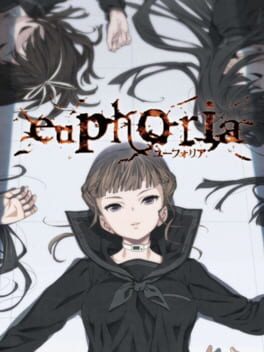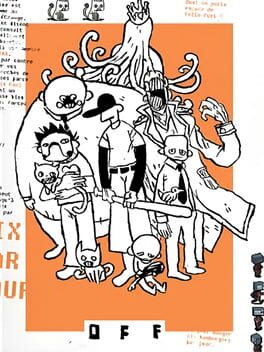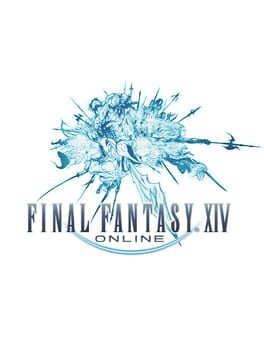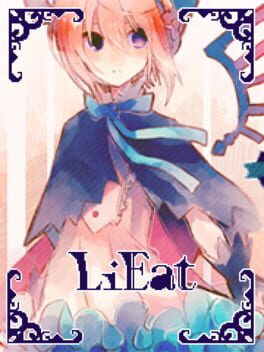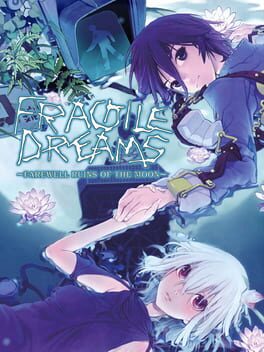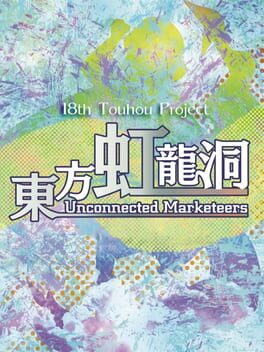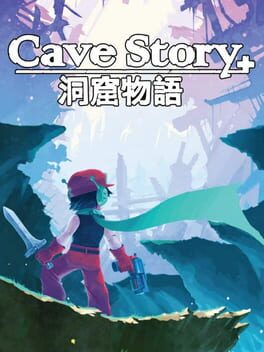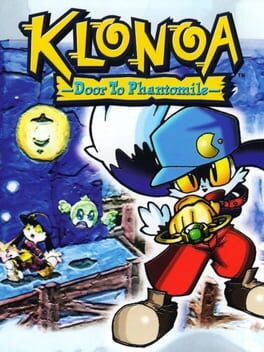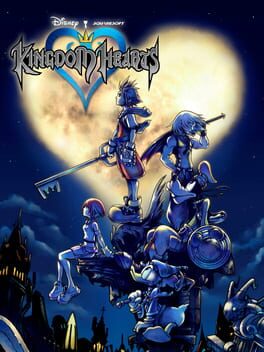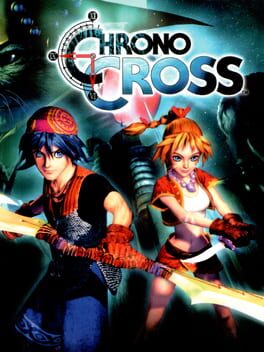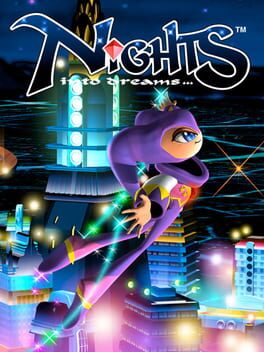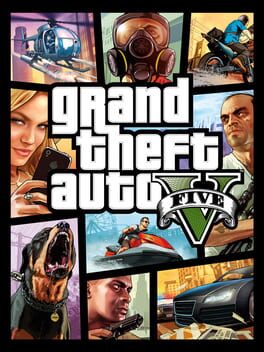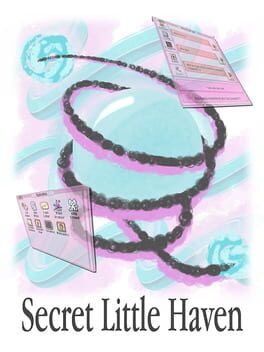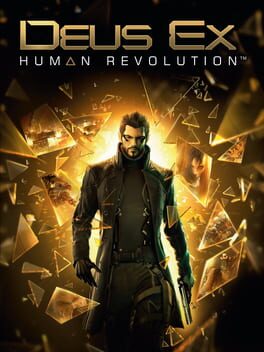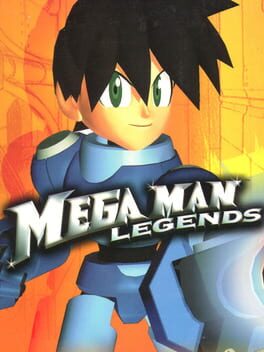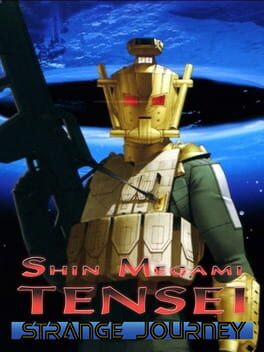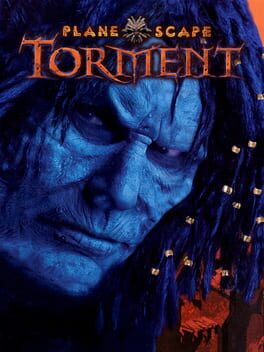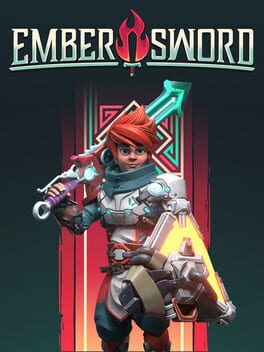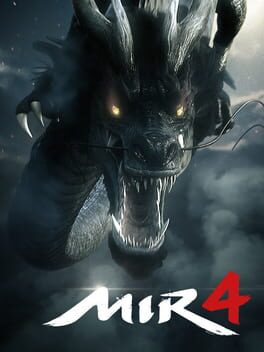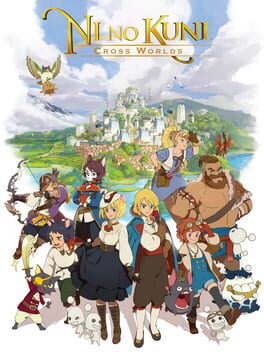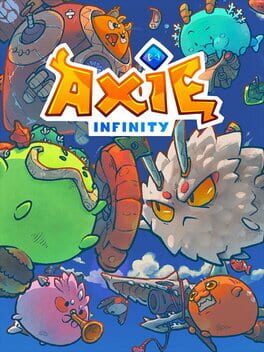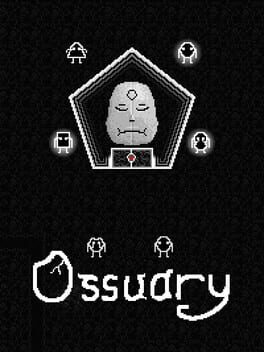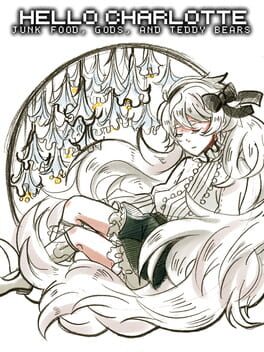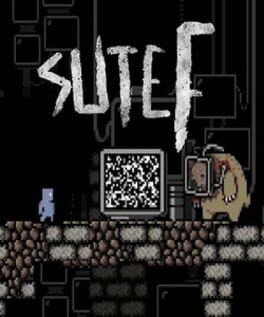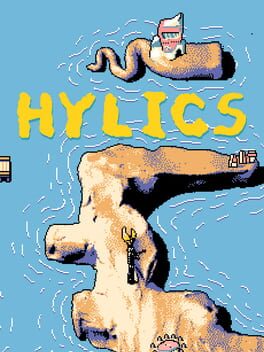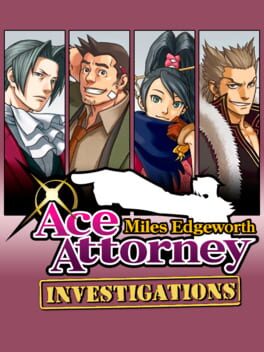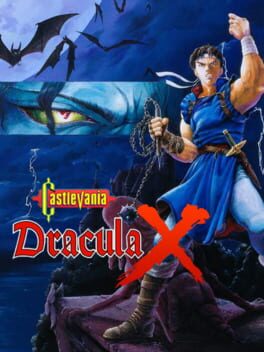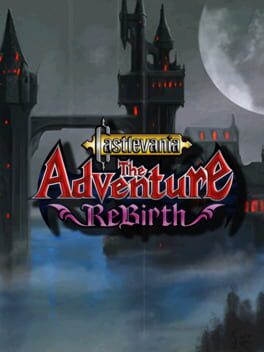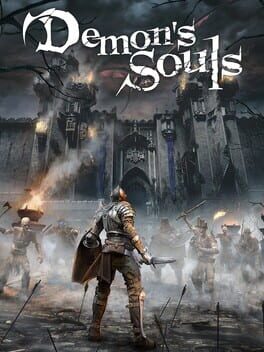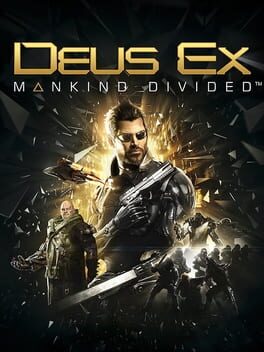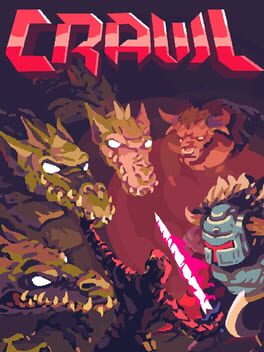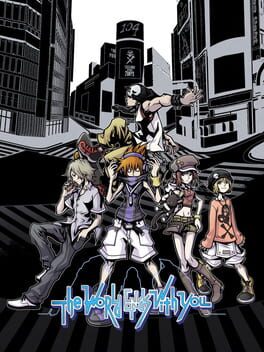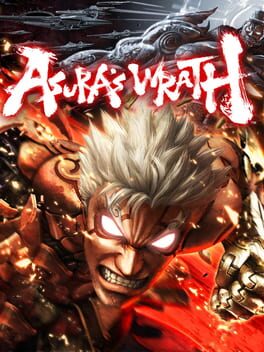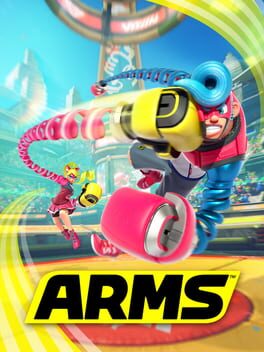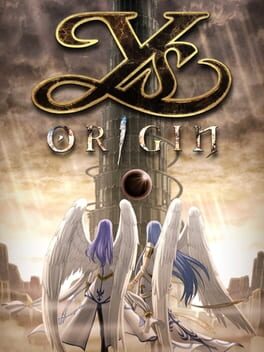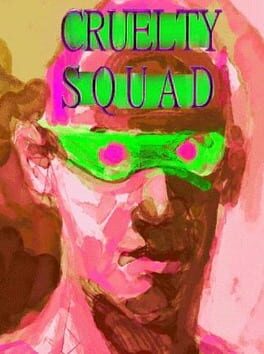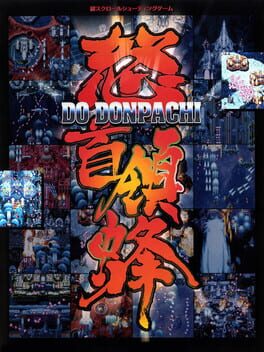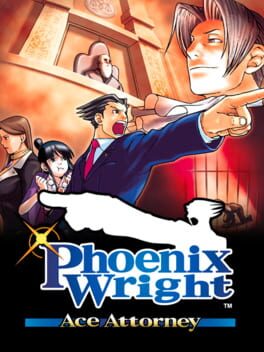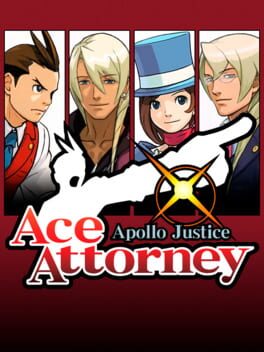62 reviews liked by Zweinachter
it really could've been way more funny and exciting, but it has way too many moments of "isn't this sad/relatable???" shoved in your face and it just makes it feel, ironically, out of touch. fantastic UI and art direction/pixel art, and how the game plays with the music is really genius, but i can see this easily being the next overrated """""mental health analysis/commentary"""""" thing....
most fun thing about it is the genuine balancing act of every attribute as the game 'ends' early if most are maxed out, unlike other raising sims where maxing everything is the goal.
most fun thing about it is the genuine balancing act of every attribute as the game 'ends' early if most are maxed out, unlike other raising sims where maxing everything is the goal.
Bloodborne is, together with C. Mieville, what made me fall in love and ruined every other Lovecraftian fiction. I wish more modern gothic horror narratives dealt in such a complete and creative way with tropes such as men versus gods, the grasp for knowledge and purpose in a mysterious, uncaring cosmos, anti-myths and so on.
Steins;Gate
2009
Spoilers in the review because who even cares anymore
Steins;Gate is one of the most successful mess ever written. It is a confused, overlong slog devoid of characters, pacing and meaning. A walking shadow, a poor player that struts and frets his hour upon the stage and then is heard no more. It is a tale told by an idiot, full of sound and fury, signifying nothing.
It presents itself as a comedic, thriller-themed, sci-fi-ish slice of life piece about a group of wacky nerdy friends, as aware and believable in their roles as the big bang theory’s cast, which spends the first half of the game concluding nothing of relevance and the latter half of the game undoing the former. There is a significant attempt to deliver a message about the importance of free will in humanity, about our own limits, to face and accept the choices and consequences of our own free will and actions, establishing that we cannot have an ideal, easy, cotton-candy life because there is always a part of the world beyond our control, that we do have an impact on the world, and then the message is sent down the flush because we need an happy ending so here’s the resolution done off-screen for the main characters and believe in yourself, coincidence and improvisation will solve every conflict. Hours after reading through the misery of characters you are supposed to like, the game just gives you the comfortable solution that none of that matters, people will still be happy and you have to pretend those conflict never existed.
The protagonist, okabe, is a useless slab of wasted air, he fancies himself a science genius when he has no theoretical expertise aside from googling and reading stuff on Wikipedia and online boards, no technical skill, if it were not for the clear instructions others give him. Every major important concept in the story is introduced, theorized, discussed, solved and then engineered by someone else, he just uses them with barely knowing how any of those work. He also behaves like a daft twat for half of the game toward anyone, yet people still stick around him and act like he’s a dear friend despite being showered in his chauvinism, arrogance and terrible, terrible manners. When at the midpoint of the story he’s supposed to grow and start act like a caring individual, as said before he just undoes and forgets gradually every conflict his ‘friends’ have, and when he has to face the consequences of his actions, once again someone else hands him the deus ex machina, without him having to do any effort except crying and be sad about it for a bit. You aren’t even given the time to assimilate and feel the weight of the events, as you already expect a convenient solution to be on the way by that point.
The pacing is all over the place: many chapters that should be focused on progressing the story just digress and forget any sense of urgency despite time being the central idea of the story. A whole chapter is dedicated to having someone win a yu-gi-oh tournament, which isn’t even the main conflict of the arc’s protagonist, and then the real issue is presented and quickly dealt with in ten minutes before undoing it again and moving on to someone else’s life to ruin. This is gorilla-tier writing, how do you spend over half of your chapters’ length like this, with no editor to cut out the unnecessary bits, is beyond me.
The side cast is a mix of unfunny, clichéd anime tropes, with the major actors being a dumb happy-go-lucky girl whose major defining traits are being dumb and happy-go-lucky, a supposedly genius engineer and hacker constantly acting like a dangerous sexual molester, a psychotic super soldier so stupid she’d forget to eat or breath if you didn’t tell her to, another psychotic super soldier which should solve all the plot within minutes of playing start but there’s another idiot I guess, the genius tough but shy girl that should sound conflicted but actually has an emotional disorder and is just made fun of by everyone else, writer included. I didn’t even touch upon the token moe stereotype with no growth because, let’s face it, all the female characters can easily apply for the role.
The CGI and character design are hideous, poorly drawn, with terrible proportions and depth, weird colouring, unnatural and unhuman faces, body proportions and expressions (those eyes will hunt me in my sleep), that make the story seem like it takes place in alternate universe where everyone is the creature from the movie ‘the fly’. Credit where credit is due, the voice acting work and sound is pretty impressive, there are some really powerful tracks in the background music and most of the voice actors, from miyano mamoru to seki tomokazu, from tamura yukari to googling imai asami, each of them play their roles and the emotions they should convey very well.
That being said, even as a sound novel steins;gate is still overlong and riddled with dumb twists and nonsense to serve shock value rather than compelling, meaningful progression and satisfying conclusions based on its own terms, development and themes. If you want a visual novel dealing with sci-fi and thriller there’s plenty of dumb fun to be had with the nonary games, as bad as those can get, or just read chaos;child and experience the better sci;adv novel.
Steins;Gate is one of the most successful mess ever written. It is a confused, overlong slog devoid of characters, pacing and meaning. A walking shadow, a poor player that struts and frets his hour upon the stage and then is heard no more. It is a tale told by an idiot, full of sound and fury, signifying nothing.
It presents itself as a comedic, thriller-themed, sci-fi-ish slice of life piece about a group of wacky nerdy friends, as aware and believable in their roles as the big bang theory’s cast, which spends the first half of the game concluding nothing of relevance and the latter half of the game undoing the former. There is a significant attempt to deliver a message about the importance of free will in humanity, about our own limits, to face and accept the choices and consequences of our own free will and actions, establishing that we cannot have an ideal, easy, cotton-candy life because there is always a part of the world beyond our control, that we do have an impact on the world, and then the message is sent down the flush because we need an happy ending so here’s the resolution done off-screen for the main characters and believe in yourself, coincidence and improvisation will solve every conflict. Hours after reading through the misery of characters you are supposed to like, the game just gives you the comfortable solution that none of that matters, people will still be happy and you have to pretend those conflict never existed.
The protagonist, okabe, is a useless slab of wasted air, he fancies himself a science genius when he has no theoretical expertise aside from googling and reading stuff on Wikipedia and online boards, no technical skill, if it were not for the clear instructions others give him. Every major important concept in the story is introduced, theorized, discussed, solved and then engineered by someone else, he just uses them with barely knowing how any of those work. He also behaves like a daft twat for half of the game toward anyone, yet people still stick around him and act like he’s a dear friend despite being showered in his chauvinism, arrogance and terrible, terrible manners. When at the midpoint of the story he’s supposed to grow and start act like a caring individual, as said before he just undoes and forgets gradually every conflict his ‘friends’ have, and when he has to face the consequences of his actions, once again someone else hands him the deus ex machina, without him having to do any effort except crying and be sad about it for a bit. You aren’t even given the time to assimilate and feel the weight of the events, as you already expect a convenient solution to be on the way by that point.
The pacing is all over the place: many chapters that should be focused on progressing the story just digress and forget any sense of urgency despite time being the central idea of the story. A whole chapter is dedicated to having someone win a yu-gi-oh tournament, which isn’t even the main conflict of the arc’s protagonist, and then the real issue is presented and quickly dealt with in ten minutes before undoing it again and moving on to someone else’s life to ruin. This is gorilla-tier writing, how do you spend over half of your chapters’ length like this, with no editor to cut out the unnecessary bits, is beyond me.
The side cast is a mix of unfunny, clichéd anime tropes, with the major actors being a dumb happy-go-lucky girl whose major defining traits are being dumb and happy-go-lucky, a supposedly genius engineer and hacker constantly acting like a dangerous sexual molester, a psychotic super soldier so stupid she’d forget to eat or breath if you didn’t tell her to, another psychotic super soldier which should solve all the plot within minutes of playing start but there’s another idiot I guess, the genius tough but shy girl that should sound conflicted but actually has an emotional disorder and is just made fun of by everyone else, writer included. I didn’t even touch upon the token moe stereotype with no growth because, let’s face it, all the female characters can easily apply for the role.
The CGI and character design are hideous, poorly drawn, with terrible proportions and depth, weird colouring, unnatural and unhuman faces, body proportions and expressions (those eyes will hunt me in my sleep), that make the story seem like it takes place in alternate universe where everyone is the creature from the movie ‘the fly’. Credit where credit is due, the voice acting work and sound is pretty impressive, there are some really powerful tracks in the background music and most of the voice actors, from miyano mamoru to seki tomokazu, from tamura yukari to googling imai asami, each of them play their roles and the emotions they should convey very well.
That being said, even as a sound novel steins;gate is still overlong and riddled with dumb twists and nonsense to serve shock value rather than compelling, meaningful progression and satisfying conclusions based on its own terms, development and themes. If you want a visual novel dealing with sci-fi and thriller there’s plenty of dumb fun to be had with the nonary games, as bad as those can get, or just read chaos;child and experience the better sci;adv novel.
The moment I downloaded Wonderful Everyday, I realized that I’ve made a terrible mistake, as alongside the game’s installation folder there was a file that redirected to a website called “Fap for Fun”. Despite trying to deny its very essence, Subarashiki Hibi always felt like an erotic game first, and a drama story second. The themes that it tries to tackle such as lack of proper treatment and respect to mental illnesses, cult mentality and its propagation, and ironically, porn addiction, are hidden beneath a total of disheartening 17 explicit h-scenes, that are most of the time directly tied to the story, instead of “bonus scenes” that you can turn on and off in the menu.
The story is filled with moments that start off tackling a properly interesting theme or topic and then proceed to take a complete 180, becoming just another harmless predictable scene that vomits cliché hentai tropes. The appeal of subahibi comes from the fact that there are some genuinely great and creative segments of storytelling that could only ever be experienced in a visual novel format, but those precious moments are deep within a sea of ecchi mediocrity. You might be asking yourself, “how worth is this dive?”, and to properly answer that, and also why such a specific eroge gathered a cult following as a fourth eye opening provocative narrative, we first have to talk about how VN’s tend to implement this type of adult content (If you are sensitive to topics such as these, please sit this one out).
Lewdness has always been associated with visual novels, no matter where you look at it. Whether we’re judging possibly the first one ever released, or some other “classics” such as sex, and it’s perfectly named sequel, sex 2, and many other games mostly for the pc-98, these titles found a lot of success predominantly aiming towards a lonely straight male demographic. The inclusion of either full on explicit h-scenes or elements from dating sims, sometimes even both, was to be fully expected in this media’s infancy. Stories during this period sometimes avoided this topic altogether, however, that was a gamble not everyone decided to take, as the mere inclusion of some sexual content would likely increase for sure the number of people who would want to give your novel a shot. After some years, a weird symbiotic relation started to develop, as a lot of independent novels from the early 00’s tried to hook the viewer with promises of showing NSFW material, but made them keep wanting to read until the very end, due to the proper story that it was telling.
Tsukihime, for example, would not only work, but also be massively improved without every single despicable fetishized rape scene or dialogue mention. It’s very telling that in the 2021 remake of the novel, the studio behind it decided to pretend that all h-scenes didn’t happen and adapted the script to it, essentially turning the story into a proper cohesive shonen that doesn’t perform mental gymnastics to justify rape whenever possible, solidifying it as the definitive way to experience the novel. In a less extreme case, we can also take a glance at Higurashi, who early on put a lot of emphasis in long fetishized sequences that replicated staples from ecchi stories, but gradually stopped being as frequent, as the narrative started to find its footing, besides some occasional nods in bad taste from Ryukishi07. What makes Higurashi’s case interesting, is the fact that it’s the opposite approach from Subarashiki Hibi: The ecchi scenes contradicted one of the game’s themes about child protection, while in Wonderful Everyday, you'd see even more scenes depending in how essential to the theme the chapter was.
Through the years, visual novels started to gradually become more and more respected as a media in no small part due to works such as the previous ones mentioned. By slowly being freed from its private horny jail, a wave of new stories started being developed for other demographics, like straight women or non horny men, eventually attracting the attention of people outside of Japan. The late 00’s were marked by some novels being developed, translated, and appreciated by foreigners, which even saw some works from previous years such as Saya no Uta, Umineko and Fate/Stay Night gathering a considerable late cult-like following as classics.
Despite all that however, Subahibi opted to tackle themes strictly tied to pornography, and it still became relatively famous around the newer circle of VN’s that westerners appreciated. Direct comparisons to the infamous 'Boku no Pico' anime can be made, as both weren't the first nor best ones to tackle niche erotic themes in a media mostly seen at the time outside of Japan as "something for kids". Both of them ended up gathering attention due to the timing and difficulty of access to other products of the same medium during their respectable releases.
Written primarily aimed towards a straight male demographic and with the premise of showing gratuitous NSFW material, it has a completely pointless first chapter that lasts around 4 hours and is solely made as a symbiotic hook. After reading the novel to its full extent and revisiting the beginning chapter, I hoped to find a new meaning to what exactly happened, but it just left me feeling very disappointed. A pattern that you'll see from the novel that plays an important role in the chapter, is that there are plenty of useless name drops to a lot of other "intellectual media", that has little to do with the story. The only use for such is that it tries to show some validation to the reader to what they are reading, as in pretending it's an actual respectable story that just so happens to have a generic and forgettable anime art style.
This is your warning for spoilers now, if you’re still thinking about giving this one a shot, please do keep in mind that it’s somewhat long and tackles frail topics without proper respect.
The second chapter thankfully denies the eroge counterpart and goes for a more eerie atmosphere, showing the ascension of the typical nerd loser, Mamiya Takuji, as an actual God among men. This was a very surprising yet welcome change, and in hindsight I appreciate this chapter more, as it could have been the start of something great, however, it also has some of the shallowness the early chapter had, but in a different way. I didn’t care for the opening chapter at all but I always understood why they were acting in such a one dimensional porn-like way, meaning that even if the scene was just an excuse to show a panty shot, it would still make some sense narrative-wise. In the second one however, Yuki, the protagonist once again, and everyone else involved, acted in a way that felt like their actions were randomized. It mostly makes sense in the hours to come after the “twist” but that doesn’t help the fact that it’s just another 4 hours of infodump done wrong as Yuki only opts to delve deep in the subject of the underground forum and not answer some other key areas. Essential plot points such as Mamiya’s family, or the twins suddenly acting aggressive towards him, or pretty much everything relating to Zakuro, who was the most important part of the opening chapter, are put under a pretentious rug called "Don't think about it too much".
It’s really interesting seeing how she reaches to some logical conclusions while reading, but it’s similar to a game of Clue, where you’ll discover what happened and feel good about it, but in the end you were so unattached to the characters that you just accept Colonel Mustard probably just wanted to use that knife in the Hall. Things aren’t better for Mamiya’s side, as the only real segment of him showing some faint semblance of distinctive personality was in one of the most embarrassing written scenes I have ever seen in any visual novel.
Takuji’s pitiful speech, his spotlight moment, is one that can only truly be impressive for those that, to put it nicely, like to mention quotes or name drop philosophers without knowing what they stood for, which should say something about the shallowness of most VN’s as the scene is hailed as a sort of “redpill”. His discourse is plagued with small problems, but one of the most fundamental ones is that death became suppressed dogma in modern society, which doesn’t make sense if you also argue that philosophy fundamentally changed it’s key areas with time, and that religion is a type of philosophy, which is true by definition but doesn't give room for your point. If you are confused, it's like arguing how old movies embraced nationalism as a fundamental part of their stories and then argue that there is a conspiracy nowadays to have movies not embracing this pillar, without realizing that it was something related to the time period instead of the media, while also agreeing that movies changed fundamentally with time which leads to the development of a direct counter culture.
When called out by Yuki, who makes a flimsy and flawed argument for someone that reads Kant, about how he sees human lives, Takuji argues that it’s not charlatanism because “the only thing that matters is that he is right in the end”. All that was missing from this scene was a Big Bang Theory laugh track to finish it off: the amazing manifest that ends with the argument “I’m the chad and you’re soyjack”. The point of the scene, as pointed out by a friend, is to display that Takuji is wrong, as he even hits a girl in the class and talks about how people attribute others as being crazy when they don’t understand, which internally forced the author into writing others as the dumbest human beings possible, even making the history teacher respond to Mamiya with “I don’t know” when asked what part of what he said was wrong. In retrospect I partially agree with my friend’s take, but I think the framing and the fact that he was shown to posses godlike powers makes me think that they wanted to sneak in some truths in his arguments to justify him being in the wrong by just making him unnecessarily aggressive and rude, like how Marvel wrote Black Panther’s villain, Killmonger, in the 2018 movie.
Third chapter is all about Takuji’s point of view, which makes the second chapter nearly useless and redundant, as his point of view is far more interesting and makes Yuki’s actions feel more humane as she doesn’t seem like your typical dumb yet top notch detective. This is THE CHAPTER for h-scenes, featuring a lot of gratuitous sexual violence that are handled very poorly, hitting nearly every slot in the kink bingo: rape, feminization, bdsm, more rape, futanari, public humiliation, more rape again, torture, dismemberment, and of course, even more rape. The unlikely underdog story from rape victim to serial rapist is just flat out disrespectful and ends up helping me prove my point that there isn’t a single piece of media that benefited from flat out showing rape scenes instead of making them simply implied. After enduring an entire sequence in which Takuji is abused in every way possible, and knowing what happened in the previous chapter, and how he treated Zakuro to this games most gratuitous sex scene ever, all that I could think was how he would do everything the same if he was in their places but much worse, to which latter parts of the VN proved me right. I hope everyone will agree with me on this one when I say this is the most ill-mannered way to write a story on the subject.
Chapter 4 is all about an abuse victim who starts seeing visions of God telling her to kill herself as revenge, to which the game shows that it was the right thing to do in later chapters. No further comments.
Jabberwocky onwards, is when the story finally compensates for you enduring the hot steamy garbage from before. It’s a chapter about Mamiya’s most hated bully, Yuuki Tomosane, the only actually good character in the story. Tomosane’s chapter is fascinating, it pulls the rug and explains the twist that he and Yuki were personalities developed by Takuji, they all lived in the same house, and the twins didn’t actually exist as individuals. The framing is also top notch, making you know what risks he’s taking even if you think you know how it’s going to end. Mind blowing after mind blowing scene shows a new perspective I didn’t thought was possible from the story, which made this chapter, excluding the massively homophobic comments, a blast to read. The sequel chapters, Which Dreamed It and Jabberwocky 2, are also really welcome additions to the story, although not as jaw dropping, that expand the narrative in meaningful ways that have the unfortunate consequence of making Mamiya’s torturous life feel “justified”.
2 / 3 of Subahibi is dedicated for making the reader as tortured as the girls in the story, which tries to make up for the last 1 / 3 which gives the feeling that you’ve conquered the narrative, taking a stance against what was stablished early on. That’s a really interesting concept, however, it was one that was done better in a novel that you might have heard about: The House in Fata Morgana. Written in a way that’s more mature, gracious, and made to scare easily impressionable VN fans, it deals with dark themes as well, but with a proper respect for the situation in which the characters find themselves in. The also really competent sequel, A Requiem for Innocence, talks about similar themes from Subahibi which are it’s main justification for shoving garbage eroge topes, having the characters live in a brothel and dealing with an oppressive threat that haunts their frail psychology. Their themes are obviously not comparable on a 1 to 1 basis, however even if it's lowest points, one shows the other that you don’t have to treat every female character as pawns that merely exist to fuck when a male character so desires.
Main point is, what Wonderful Everyday does well, is done better in other visual novels, and what it does wrong, could only be done poorly here. Unless you really like the sensation of scavenging through hours of garbage to find gold that doesn't shine as bright as others given for free, maybe this one is not for you. If you still really want to know how this mess feels, I guess there’s no saving, since the premise is interesting nonetheless.
There is an undeniable value in early 10’s VN culture with Subahibi that made it stand out, however its vile and disrespectful approach to sensitive topics were a problem even when it launched, and it gets more outdated by the year as visual novels get more sophisticated, denying its origins as a media that started with a game in which you undress a minor for fun, and starting to develop more on the lines of being an interactive story. After multiple warnings by different people telling me to stop reading it, I endured through the end of Subarashiki Hibi hoping to find something that was clearly never meant to be there, as alongside the game’s installation folder there was a file that redirected to a website called “Fap for Fun”.
The story is filled with moments that start off tackling a properly interesting theme or topic and then proceed to take a complete 180, becoming just another harmless predictable scene that vomits cliché hentai tropes. The appeal of subahibi comes from the fact that there are some genuinely great and creative segments of storytelling that could only ever be experienced in a visual novel format, but those precious moments are deep within a sea of ecchi mediocrity. You might be asking yourself, “how worth is this dive?”, and to properly answer that, and also why such a specific eroge gathered a cult following as a fourth eye opening provocative narrative, we first have to talk about how VN’s tend to implement this type of adult content (If you are sensitive to topics such as these, please sit this one out).
Lewdness has always been associated with visual novels, no matter where you look at it. Whether we’re judging possibly the first one ever released, or some other “classics” such as sex, and it’s perfectly named sequel, sex 2, and many other games mostly for the pc-98, these titles found a lot of success predominantly aiming towards a lonely straight male demographic. The inclusion of either full on explicit h-scenes or elements from dating sims, sometimes even both, was to be fully expected in this media’s infancy. Stories during this period sometimes avoided this topic altogether, however, that was a gamble not everyone decided to take, as the mere inclusion of some sexual content would likely increase for sure the number of people who would want to give your novel a shot. After some years, a weird symbiotic relation started to develop, as a lot of independent novels from the early 00’s tried to hook the viewer with promises of showing NSFW material, but made them keep wanting to read until the very end, due to the proper story that it was telling.
Tsukihime, for example, would not only work, but also be massively improved without every single despicable fetishized rape scene or dialogue mention. It’s very telling that in the 2021 remake of the novel, the studio behind it decided to pretend that all h-scenes didn’t happen and adapted the script to it, essentially turning the story into a proper cohesive shonen that doesn’t perform mental gymnastics to justify rape whenever possible, solidifying it as the definitive way to experience the novel. In a less extreme case, we can also take a glance at Higurashi, who early on put a lot of emphasis in long fetishized sequences that replicated staples from ecchi stories, but gradually stopped being as frequent, as the narrative started to find its footing, besides some occasional nods in bad taste from Ryukishi07. What makes Higurashi’s case interesting, is the fact that it’s the opposite approach from Subarashiki Hibi: The ecchi scenes contradicted one of the game’s themes about child protection, while in Wonderful Everyday, you'd see even more scenes depending in how essential to the theme the chapter was.
Through the years, visual novels started to gradually become more and more respected as a media in no small part due to works such as the previous ones mentioned. By slowly being freed from its private horny jail, a wave of new stories started being developed for other demographics, like straight women or non horny men, eventually attracting the attention of people outside of Japan. The late 00’s were marked by some novels being developed, translated, and appreciated by foreigners, which even saw some works from previous years such as Saya no Uta, Umineko and Fate/Stay Night gathering a considerable late cult-like following as classics.
Despite all that however, Subahibi opted to tackle themes strictly tied to pornography, and it still became relatively famous around the newer circle of VN’s that westerners appreciated. Direct comparisons to the infamous 'Boku no Pico' anime can be made, as both weren't the first nor best ones to tackle niche erotic themes in a media mostly seen at the time outside of Japan as "something for kids". Both of them ended up gathering attention due to the timing and difficulty of access to other products of the same medium during their respectable releases.
Written primarily aimed towards a straight male demographic and with the premise of showing gratuitous NSFW material, it has a completely pointless first chapter that lasts around 4 hours and is solely made as a symbiotic hook. After reading the novel to its full extent and revisiting the beginning chapter, I hoped to find a new meaning to what exactly happened, but it just left me feeling very disappointed. A pattern that you'll see from the novel that plays an important role in the chapter, is that there are plenty of useless name drops to a lot of other "intellectual media", that has little to do with the story. The only use for such is that it tries to show some validation to the reader to what they are reading, as in pretending it's an actual respectable story that just so happens to have a generic and forgettable anime art style.
This is your warning for spoilers now, if you’re still thinking about giving this one a shot, please do keep in mind that it’s somewhat long and tackles frail topics without proper respect.
The second chapter thankfully denies the eroge counterpart and goes for a more eerie atmosphere, showing the ascension of the typical nerd loser, Mamiya Takuji, as an actual God among men. This was a very surprising yet welcome change, and in hindsight I appreciate this chapter more, as it could have been the start of something great, however, it also has some of the shallowness the early chapter had, but in a different way. I didn’t care for the opening chapter at all but I always understood why they were acting in such a one dimensional porn-like way, meaning that even if the scene was just an excuse to show a panty shot, it would still make some sense narrative-wise. In the second one however, Yuki, the protagonist once again, and everyone else involved, acted in a way that felt like their actions were randomized. It mostly makes sense in the hours to come after the “twist” but that doesn’t help the fact that it’s just another 4 hours of infodump done wrong as Yuki only opts to delve deep in the subject of the underground forum and not answer some other key areas. Essential plot points such as Mamiya’s family, or the twins suddenly acting aggressive towards him, or pretty much everything relating to Zakuro, who was the most important part of the opening chapter, are put under a pretentious rug called "Don't think about it too much".
It’s really interesting seeing how she reaches to some logical conclusions while reading, but it’s similar to a game of Clue, where you’ll discover what happened and feel good about it, but in the end you were so unattached to the characters that you just accept Colonel Mustard probably just wanted to use that knife in the Hall. Things aren’t better for Mamiya’s side, as the only real segment of him showing some faint semblance of distinctive personality was in one of the most embarrassing written scenes I have ever seen in any visual novel.
Takuji’s pitiful speech, his spotlight moment, is one that can only truly be impressive for those that, to put it nicely, like to mention quotes or name drop philosophers without knowing what they stood for, which should say something about the shallowness of most VN’s as the scene is hailed as a sort of “redpill”. His discourse is plagued with small problems, but one of the most fundamental ones is that death became suppressed dogma in modern society, which doesn’t make sense if you also argue that philosophy fundamentally changed it’s key areas with time, and that religion is a type of philosophy, which is true by definition but doesn't give room for your point. If you are confused, it's like arguing how old movies embraced nationalism as a fundamental part of their stories and then argue that there is a conspiracy nowadays to have movies not embracing this pillar, without realizing that it was something related to the time period instead of the media, while also agreeing that movies changed fundamentally with time which leads to the development of a direct counter culture.
When called out by Yuki, who makes a flimsy and flawed argument for someone that reads Kant, about how he sees human lives, Takuji argues that it’s not charlatanism because “the only thing that matters is that he is right in the end”. All that was missing from this scene was a Big Bang Theory laugh track to finish it off: the amazing manifest that ends with the argument “I’m the chad and you’re soyjack”. The point of the scene, as pointed out by a friend, is to display that Takuji is wrong, as he even hits a girl in the class and talks about how people attribute others as being crazy when they don’t understand, which internally forced the author into writing others as the dumbest human beings possible, even making the history teacher respond to Mamiya with “I don’t know” when asked what part of what he said was wrong. In retrospect I partially agree with my friend’s take, but I think the framing and the fact that he was shown to posses godlike powers makes me think that they wanted to sneak in some truths in his arguments to justify him being in the wrong by just making him unnecessarily aggressive and rude, like how Marvel wrote Black Panther’s villain, Killmonger, in the 2018 movie.
Third chapter is all about Takuji’s point of view, which makes the second chapter nearly useless and redundant, as his point of view is far more interesting and makes Yuki’s actions feel more humane as she doesn’t seem like your typical dumb yet top notch detective. This is THE CHAPTER for h-scenes, featuring a lot of gratuitous sexual violence that are handled very poorly, hitting nearly every slot in the kink bingo: rape, feminization, bdsm, more rape, futanari, public humiliation, more rape again, torture, dismemberment, and of course, even more rape. The unlikely underdog story from rape victim to serial rapist is just flat out disrespectful and ends up helping me prove my point that there isn’t a single piece of media that benefited from flat out showing rape scenes instead of making them simply implied. After enduring an entire sequence in which Takuji is abused in every way possible, and knowing what happened in the previous chapter, and how he treated Zakuro to this games most gratuitous sex scene ever, all that I could think was how he would do everything the same if he was in their places but much worse, to which latter parts of the VN proved me right. I hope everyone will agree with me on this one when I say this is the most ill-mannered way to write a story on the subject.
Chapter 4 is all about an abuse victim who starts seeing visions of God telling her to kill herself as revenge, to which the game shows that it was the right thing to do in later chapters. No further comments.
Jabberwocky onwards, is when the story finally compensates for you enduring the hot steamy garbage from before. It’s a chapter about Mamiya’s most hated bully, Yuuki Tomosane, the only actually good character in the story. Tomosane’s chapter is fascinating, it pulls the rug and explains the twist that he and Yuki were personalities developed by Takuji, they all lived in the same house, and the twins didn’t actually exist as individuals. The framing is also top notch, making you know what risks he’s taking even if you think you know how it’s going to end. Mind blowing after mind blowing scene shows a new perspective I didn’t thought was possible from the story, which made this chapter, excluding the massively homophobic comments, a blast to read. The sequel chapters, Which Dreamed It and Jabberwocky 2, are also really welcome additions to the story, although not as jaw dropping, that expand the narrative in meaningful ways that have the unfortunate consequence of making Mamiya’s torturous life feel “justified”.
2 / 3 of Subahibi is dedicated for making the reader as tortured as the girls in the story, which tries to make up for the last 1 / 3 which gives the feeling that you’ve conquered the narrative, taking a stance against what was stablished early on. That’s a really interesting concept, however, it was one that was done better in a novel that you might have heard about: The House in Fata Morgana. Written in a way that’s more mature, gracious, and made to scare easily impressionable VN fans, it deals with dark themes as well, but with a proper respect for the situation in which the characters find themselves in. The also really competent sequel, A Requiem for Innocence, talks about similar themes from Subahibi which are it’s main justification for shoving garbage eroge topes, having the characters live in a brothel and dealing with an oppressive threat that haunts their frail psychology. Their themes are obviously not comparable on a 1 to 1 basis, however even if it's lowest points, one shows the other that you don’t have to treat every female character as pawns that merely exist to fuck when a male character so desires.
Main point is, what Wonderful Everyday does well, is done better in other visual novels, and what it does wrong, could only be done poorly here. Unless you really like the sensation of scavenging through hours of garbage to find gold that doesn't shine as bright as others given for free, maybe this one is not for you. If you still really want to know how this mess feels, I guess there’s no saving, since the premise is interesting nonetheless.
There is an undeniable value in early 10’s VN culture with Subahibi that made it stand out, however its vile and disrespectful approach to sensitive topics were a problem even when it launched, and it gets more outdated by the year as visual novels get more sophisticated, denying its origins as a media that started with a game in which you undress a minor for fun, and starting to develop more on the lines of being an interactive story. After multiple warnings by different people telling me to stop reading it, I endured through the end of Subarashiki Hibi hoping to find something that was clearly never meant to be there, as alongside the game’s installation folder there was a file that redirected to a website called “Fap for Fun”.
Omori
2020
euphoria
2011
The true reveal of Metal Gear Solid 2 is not that we play as Raiden instead of Solid Snake - it's that the antagonist of the game does not exist. It's pulling back the curtain to find that the man behind it died a century ago. The most powerful nation on Earth is essentially an algorithm with a mind of its own, akin to a runaway train that everyone "in charge" pretends they are responsible for. There is no individual you get to blame. Not the politicians, not the CEOs of major corporations. Not even the current or former presidents of the United States have any idea of what's really going on. The algorithm will replace these people the second they stop being useful. In my opinion it's a much better conception of "the system" than what you see in most conspiracy fiction: a small, shadowy cabal of people pulling the strings from behind the scenes. The reality is that all of the powerful people we blame are just the ones who managed to latch on to the algorithm of capitalism and milk it for all they can. There is no grand design, nobody is in control, everyone responsible for setting this system into motion is long dead. Which is why Otacon says the Patriots "have been dead for 100 years".
Every choice you (and Raiden) make perpetuates this status quo, and every radical political cause (like Snake and Otacon's 'Philanthropy') is effortlessly co-opted by it. MGS2 conveys this idea in a way that only a video game could: By playing as Raiden, you are forced to directly confront the futility of any resistance. You can approach MGS2 in a million different ways with an expansive arsenal of tools, getting no kills or alerts and discovering every secret in the Big Shell, or do the exact opposite. But the end result is always the same: You kill Solidus, the only threat to the Patriots, after they explicitly tell you it's exactly what they want. If you opt out entirely and "turn the game console off" you're still doing something you were ordered to do. Even if you choose not to play, you lose to the Patriots. MGS2 places you in the position of the post-information age, digital subject: Imbued with detailed knowledge of every single way you are being oppressed and exploited, you still choose to follow orders. You are so overwhelmed by information, some true, some false, that is causes a kind of exasperated compliance.
This is simultaneously a commentary on the nature of video game stories as an immutable, pre-programmed series of events not as different from film narratives as we like to think; Any "choice" is always an illusion, whether it's in Metal Gear Solid or a Telltale game. Any game that sets out to fulfill the concept of "player freedom" in its story will always fail. Video games stories are (at their best) about interactivity, not choice. They let you play out a pre-ordained role and do some improvisation, not write the story. Kojima understands this, and it's why he borrows so much from film. It's also why the criticism that his games are too much like movies is kind of pointless; he's just recognizing the inherent similarities of the two mediums.
On a less meta level, this lack of free will in MGS2 underscores the reality that capitalism, American empire, the very norms and values of American society, whatever the antagonist of the game is - cannot be destroyed from within. It is a system that has achieved self-awareness. Any possible attempt to destroy it has already been anticipated with an infinite number of contingencies. Emma Emmerich gave her life to destroy the GW AI and it was just replaced with a backup. The battle has already been lost, and it was decided by a microscopic processor in a fraction of a second. Solidus (a perfect stand-in for the kind of right-wing populist we wouldn't see for awhile in 2001) was the only person in power trying to oppose the Patriots, but his fatal mistake was believing that the Patriots were essentially a deep state globalist cabal, rather than the nigh omnipresent force they really are (they aren't really a "they", but an "it"). Like Snake said, "the Patriots are a kind of ongoing fiction". But even the legendary Solid Snake, the archetypal hero who opposes the system with clear-eyed determination, is completely dumbfounded after the credits roll.
And that's because this enemy is simply beyond the abilities of one man, even if that man is a Snake. It can just create its own soldier to surpass Solid(us) Snake and even mass-produce them, and your actions throughout the game prove it. No tactical espionage action can defeat what is essentially an idea - one that has infiltrated the furthest depths of the human soul. The only hope lies on a society-wide level: An alternative has to be built by everyone from the ground up, through finding what is true and meaningful in life and passing it on to the next generation. Slowly, generation by generation, an alternative capable of opposing the great algorithm can be built. And it has to be one that people can have faith in, in a spiritual sense.
But the encroachment of the internet into our lives is making this less and less feasible. By replacing the traditional nuclear-armed metal gear with Arsenal Gear, an AI that controls the internet, Kojima is essentially framing the internet itself as a threat equal to or greater than that of nuclear weapons. It is an instrument of human separation much more powerful than the splitting of an atom. The quote at the beginning of Raiden's chapter tying computers and nuclear weapons together bolsters this interpretation.
The digital age has turned human life into a scrambled mess that is impossible to parse. We create entirely idiosyncratic, patchwork realities for ourselves by finding various "truths" through our own individual exploration of the internet and jury-rigging them together. We relate to each other less and less, and mental illness is widespread. This overload of information makes us increasingly neurotic, isolated, and unable to determine truth from fiction. The collective human mind is being broken (or at least pounded into a new shape) against the collective neuroses of the internet, and nobody knows what to do about it. We're all alone right now, each of us left with the isolating task of finding our own truth amidst the cacophony. Even the algorithm fears for our future, yet it's still the only entity with a solution: Censorship. Make the noise stop. Honestly, has anyone thought of a better idea?
Every choice you (and Raiden) make perpetuates this status quo, and every radical political cause (like Snake and Otacon's 'Philanthropy') is effortlessly co-opted by it. MGS2 conveys this idea in a way that only a video game could: By playing as Raiden, you are forced to directly confront the futility of any resistance. You can approach MGS2 in a million different ways with an expansive arsenal of tools, getting no kills or alerts and discovering every secret in the Big Shell, or do the exact opposite. But the end result is always the same: You kill Solidus, the only threat to the Patriots, after they explicitly tell you it's exactly what they want. If you opt out entirely and "turn the game console off" you're still doing something you were ordered to do. Even if you choose not to play, you lose to the Patriots. MGS2 places you in the position of the post-information age, digital subject: Imbued with detailed knowledge of every single way you are being oppressed and exploited, you still choose to follow orders. You are so overwhelmed by information, some true, some false, that is causes a kind of exasperated compliance.
This is simultaneously a commentary on the nature of video game stories as an immutable, pre-programmed series of events not as different from film narratives as we like to think; Any "choice" is always an illusion, whether it's in Metal Gear Solid or a Telltale game. Any game that sets out to fulfill the concept of "player freedom" in its story will always fail. Video games stories are (at their best) about interactivity, not choice. They let you play out a pre-ordained role and do some improvisation, not write the story. Kojima understands this, and it's why he borrows so much from film. It's also why the criticism that his games are too much like movies is kind of pointless; he's just recognizing the inherent similarities of the two mediums.
On a less meta level, this lack of free will in MGS2 underscores the reality that capitalism, American empire, the very norms and values of American society, whatever the antagonist of the game is - cannot be destroyed from within. It is a system that has achieved self-awareness. Any possible attempt to destroy it has already been anticipated with an infinite number of contingencies. Emma Emmerich gave her life to destroy the GW AI and it was just replaced with a backup. The battle has already been lost, and it was decided by a microscopic processor in a fraction of a second. Solidus (a perfect stand-in for the kind of right-wing populist we wouldn't see for awhile in 2001) was the only person in power trying to oppose the Patriots, but his fatal mistake was believing that the Patriots were essentially a deep state globalist cabal, rather than the nigh omnipresent force they really are (they aren't really a "they", but an "it"). Like Snake said, "the Patriots are a kind of ongoing fiction". But even the legendary Solid Snake, the archetypal hero who opposes the system with clear-eyed determination, is completely dumbfounded after the credits roll.
And that's because this enemy is simply beyond the abilities of one man, even if that man is a Snake. It can just create its own soldier to surpass Solid(us) Snake and even mass-produce them, and your actions throughout the game prove it. No tactical espionage action can defeat what is essentially an idea - one that has infiltrated the furthest depths of the human soul. The only hope lies on a society-wide level: An alternative has to be built by everyone from the ground up, through finding what is true and meaningful in life and passing it on to the next generation. Slowly, generation by generation, an alternative capable of opposing the great algorithm can be built. And it has to be one that people can have faith in, in a spiritual sense.
But the encroachment of the internet into our lives is making this less and less feasible. By replacing the traditional nuclear-armed metal gear with Arsenal Gear, an AI that controls the internet, Kojima is essentially framing the internet itself as a threat equal to or greater than that of nuclear weapons. It is an instrument of human separation much more powerful than the splitting of an atom. The quote at the beginning of Raiden's chapter tying computers and nuclear weapons together bolsters this interpretation.
The digital age has turned human life into a scrambled mess that is impossible to parse. We create entirely idiosyncratic, patchwork realities for ourselves by finding various "truths" through our own individual exploration of the internet and jury-rigging them together. We relate to each other less and less, and mental illness is widespread. This overload of information makes us increasingly neurotic, isolated, and unable to determine truth from fiction. The collective human mind is being broken (or at least pounded into a new shape) against the collective neuroses of the internet, and nobody knows what to do about it. We're all alone right now, each of us left with the isolating task of finding our own truth amidst the cacophony. Even the algorithm fears for our future, yet it's still the only entity with a solution: Censorship. Make the noise stop. Honestly, has anyone thought of a better idea?
Bit.Trip Flux
2011
Hammered the entire Bit.Trip series in release order (sans the Runner sequels) the night before Christmas, I have no idea what brought me to thinking this made any sense. My scores for each of the games may not be positively glowing - I just didn't find them all too enjoyable - but you can colour me VERY surprised by how much of a journey the series takes you on.
I had no idea at all that there is a canon to these games, essentially outlining Commander Video's conception, life, death and ascension. There's something a little corny about that on paper, that's the "emotional 2009-2011 indie game story" shorthand, but it's wonderfully obfuscated here by being told almost entirely through wordless gameplay.
Despite the Pong-like bookends at the start and end of the series, each entry plays very differently, but are always a little abrasively difficult. VOID was my favourite, it was a great Katamari-like arcadey concept where you have to be very cognisant of your greed and impulse control.
I had no idea at all that there is a canon to these games, essentially outlining Commander Video's conception, life, death and ascension. There's something a little corny about that on paper, that's the "emotional 2009-2011 indie game story" shorthand, but it's wonderfully obfuscated here by being told almost entirely through wordless gameplay.
Despite the Pong-like bookends at the start and end of the series, each entry plays very differently, but are always a little abrasively difficult. VOID was my favourite, it was a great Katamari-like arcadey concept where you have to be very cognisant of your greed and impulse control.
Off
2008
Left my ass cooked and crooked. Easy to let complaints of the rigidity of RPGmaker ATB combat and exploration fall to the wayside when the game's narrative doesn't miss a beat. OFF has a lot of unique ideas, and it tells them confidently with fantastic dialogue, surreal environments and an all around sense of style. For a game that paddles in the abstract so obscenely, the conclusion still manages to expertly close the book and leave the player with exactly what they need. Thanks for the stone in the gut.
This review will be mostly partial to the Level 50 (2.X) content that existed before the first Heavensward expansion dropped.
I completed Shadowbringers on release, and went into FFXIV hibernation until the Endwalker trailer got a few friends interested in giving the game a whirl. Eagerly jumped at the opportunity to make a new character on a preferred server, if only to see what impact the long-coming quality of life alterations had on the base game content.
As long as they pick the 'preferred server', newcomers receive a hefty exp bonus that I'd say nearly destroys any need even to do an unimportant sidequest or levelling duty finder. By the time the credits rolled, I already had two classes at level 50, which slaps hard. Considerable alterations were more recently made to the overall length of the 2.X quests - removing something like 18% of main story quests, and heavily abbreviating the ones that remain and adding the ability to use flying mounts in the old zones.
This all sounds really boring and granular, but honestly, it goes a long way into shortening what I'd essentially call the absolute worst content the game has to offer.
In general, it's not until you hit level 50 for your class' toolset will finally feel something close to 'fullness', allowing the player nigh-constant engagement with skill rotations and cooldowns.
It's also not until the post-credits content where the story gets promoted above... boilerplate? Characters become more clearly defined, and the story takes a turn into a fairly convincing political drama. That isn't to say admirable themes of growing into a legend while bringing the world together to heal the wounds caused by the calamity aren't present from the start, but I'm getting ahead of myself.
The base game is A Realm Unseasoned, but I find it all worth the effort. Not only is the writing fun in a quaint enough way, but the foundation for great things to come has been made a whole lot more painless to trudge through. I don't envy the FFXIV team's task of adding ever more floors to the monolithic retrofitted nightmareskyscraper that is the game's life structure. The first content you see is the oldest and most naive, and you just have to be patient enough to watch the game grow into something spectacular as you progress through the MSQ. One thing I find particularly impressive is how well the game eases players in with evenly spaced tutorials and tools you have to play to unlock. Far too many live-service games in rotation nowadays do a terrible job at teaching the player anything in a way that isn't intensely overwhelming.
I completed Shadowbringers on release, and went into FFXIV hibernation until the Endwalker trailer got a few friends interested in giving the game a whirl. Eagerly jumped at the opportunity to make a new character on a preferred server, if only to see what impact the long-coming quality of life alterations had on the base game content.
As long as they pick the 'preferred server', newcomers receive a hefty exp bonus that I'd say nearly destroys any need even to do an unimportant sidequest or levelling duty finder. By the time the credits rolled, I already had two classes at level 50, which slaps hard. Considerable alterations were more recently made to the overall length of the 2.X quests - removing something like 18% of main story quests, and heavily abbreviating the ones that remain and adding the ability to use flying mounts in the old zones.
This all sounds really boring and granular, but honestly, it goes a long way into shortening what I'd essentially call the absolute worst content the game has to offer.
In general, it's not until you hit level 50 for your class' toolset will finally feel something close to 'fullness', allowing the player nigh-constant engagement with skill rotations and cooldowns.
It's also not until the post-credits content where the story gets promoted above... boilerplate? Characters become more clearly defined, and the story takes a turn into a fairly convincing political drama. That isn't to say admirable themes of growing into a legend while bringing the world together to heal the wounds caused by the calamity aren't present from the start, but I'm getting ahead of myself.
The base game is A Realm Unseasoned, but I find it all worth the effort. Not only is the writing fun in a quaint enough way, but the foundation for great things to come has been made a whole lot more painless to trudge through. I don't envy the FFXIV team's task of adding ever more floors to the monolithic retrofitted nightmareskyscraper that is the game's life structure. The first content you see is the oldest and most naive, and you just have to be patient enough to watch the game grow into something spectacular as you progress through the MSQ. One thing I find particularly impressive is how well the game eases players in with evenly spaced tutorials and tools you have to play to unlock. Far too many live-service games in rotation nowadays do a terrible job at teaching the player anything in a way that isn't intensely overwhelming.
